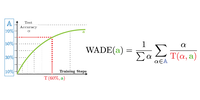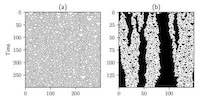
Hugo Cisneros
Lead Machine Leaning Engineer
Short Bio
I am a Lead Machine Learning engineer at Inicio. Incio is a company identifying high-potential land for the development of photovoltaic projects. My job is to leverage ML algorithms to extract data from various sources. I also work a lot with GIS tools.
Previously, I was a PhD student at the Czech Institute for Informatics, Robotics and Cybernetics (CIIRC, CTU in Prague), part of the Impact Project, and the Willow team, of INRIA and ENS. I conducted my PhD under the supervision of Tomas Mikolov (CIIRC, CTU in Prague) and Josef Sivic (CIIRC, Inria and ENS Paris). Before that, I got a Master’s degree in Mathematics, Vision, and Machine learning from École Normale Supérieure Paris-Saclay, and a Master’s degree in Engineering with a major in Computer Science at Mines ParisTech.
My research focused on the development of unsupervised machine learning algorithms capable of innovation and adaptation. I studied complex systems like cellular automata and open-ended evolution.
I am generally interested in the emergence and growth of complexity in dynamical systems and how this could lead to open-ended evolving systems. During my PhD, I have studied cellular automata and their continuous extensions as they are general and simple yet capable of surprisingly complex emergent behaviors.
News
-
August 2023 - New paper Preserving Semantics in Textual Adversarial Attacks accepted at ECAI 2023.
-
May 2023 - I successfully defended my thesis! Read the manuscript on HAL.
-
March 2023 - Started working as a Machine Learning engineer at Inicio.
-
August 2022 - Poster presentation at the 1st conference on Lifelong Learning Agents (CoLLAs 2022).
-
August 2021 - Runner-up of the Minecraft Open-Endedness Challenge, the first open-ended evolution challenge organized at the GECCO 2021 conference competition track (See the blog post, the video and the code)
-
July 2020 – Talk at Alife 2020, Montréal, Canada (virtual) for Visualizing computation in large-scale cellular automata (Video of the talk)
-
December 2019 – Talk at IEEE Alife, SSCI 2019 in Xiamen, China – Best Student paper award for Evolving Structures in Complex Systems
Publications

Preserving Semantics in Textual Adversarial Attacks

Benchmarking Learning Efficiency in Deep Reservoir Computing

Visualizing computation in large-scale cellular automata

Evolving Structures in Complex Systems
Cite Preserving Semantics in Textual Adversarial Attacks
@misc{herelPreservingSemanticsTextual2022,
title = {Preserving {{Semantics}} in {{Textual Adversarial Attacks}}},
author = {Herel, David and Cisneros, Hugo and Mikolov, Tomas},
date = {2022-11-08},
number = {arXiv:2211.04205},
eprint = {2211.04205},
eprinttype = {arxiv},
primaryclass = {cs},
publisher = {{arXiv}},
doi = {10.48550/arXiv.2211.04205},
url = {http://arxiv.org/abs/2211.04205},
urldate = {2022-11-21},
archiveprefix = {arXiv},
version = {1},
keywords = {Computer Science - Artificial Intelligence,Computer Science - Computation and Language},
}Cite Benchmarking Learning Efficiency in Deep Reservoir Computing
@inproceedings{cisnerosBenchmarkingLearningEfficiency2022a,
title = {Benchmarking {{Learning Efficiency}} in {{Deep Reservoir Computing}}},
booktitle = {Proceedings of {{The}} 1st {{Conference}} on {{Lifelong Learning Agents}}},
author = {Cisneros, Hugo and Mikolov, Tomas and Sivic, Josef},
date = {2022-11-28},
pages = {532--547},
publisher = {{PMLR}},
issn = {2640-3498},
url = {https://proceedings.mlr.press/v199/cisneros22a.html},
urldate = {2023-01-17},
eventtitle = {Conference on {{Lifelong Learning Agents}}},
langid = {english},
}Cite Visualizing computation in large-scale cellular automata
@article{doi:10.1162/isal_a_00277,
author = {Cisneros, Hugo and Sivic, Josef and Mikolov, Tomas},
title = {Visualizing computation in large-scale cellular automata},
journal = {Artificial Life Conference Proceedings},
volume = {},
number = {32},
pages = {239-247},
year = {2020},
doi = {10.1162/isal_a_00277},
URL = {https://www.mitpressjournals.org/doi/abs/10.1162/isal_a_00277},
eprint = {https://www.mitpressjournals.org/doi/pdf/10.1162/isal_a_00277} ,
}Cite Evolving Structures in Complex Systems
@inproceedings{9002840,
author={H. {Cisneros} and J. {Sivic} and T. {Mikolov}},
booktitle={2019 IEEE Symposium Series on Computational Intelligence (SSCI)},
title={Evolving Structures in Complex Systems},
year={2019},
volume={},
number={},
pages={230-237},
}